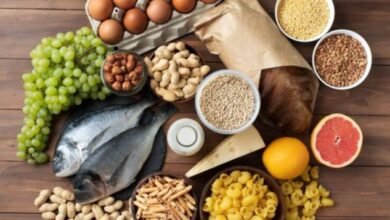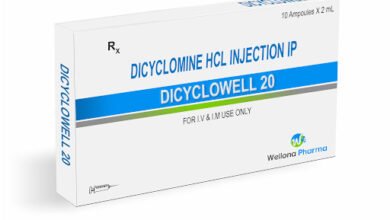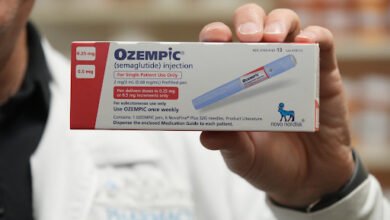Does Tea dehydrate you? | Credihealth

Tea, the most popular beverage in the world, can sometimes dehydrate. But, you may worry whether it is affecting your hydration status. Typically, some teas contain caffeine, but caffeinated teas can also be hydrating. Many tea lovers claim that teas contain antioxidants, may boost the immune system, and help with weight loss. It is enjoyed during winters and summers all around the world. Anyway, teas have always contributed to daily fluid intake in humans. Yet, the debate is whether Tea dehydrates you or not. There are different notions put forward by the experts about the same. This article will delve into Tea’s hydrating and dehydrating abilities.
Is Tea Hydrating?
Tea can be hydrating when consumed in moderation and with proper precautions. Most types of tea are around 99% water, providing valuable hydration benefits similar to drinking plain water. Whether you’re taking iced or hot Tea, it can deliver water to your body. But, the main confusion regarding hydration starts and ends with caffeine.Therefore, it must be ensured that caffeinated teas aren’t for everyone. If you already have other medical conditions, it is better to avoid teas.
Is tea a diuretic?
Tea can act as a diuretic due to its caffeine content. Caffeine is a natural compound found in tea leaves that stimulates the kidneys to filter more water from the blood, leading to increased urine production and excretion. The more caffeine in the tea, the stronger its diuretic effect will be. Black teas and certain green teas tend to have higher caffeine levels than other varieties. While tea provides hydration from the beverage itself, caffeine’s diuretic properties can cause more frequent urination. However, the diuretic impact of tea is generally mild for most people when consumed in moderation and with proper hydration.
Also Read:Tips to Improve Your Urological Health
Does hot tea dehydrate you?
Drinking hot tea can lead to dehydration if consumed excessively without replenishing fluids. Here’s why:
- Tea, mostly in black and green varieties, contains caffeine as a diuretic. According to NIH, diuretics promote increased urine production and fluid loss from the body. The combination of caffeine and the heat from hot tea compounds this dehydrating effect.
- When you drink hot liquids, your body has to work harder to cool itself down, resulting in increased perspiration and fluid loss. The hotter the tea, the more your body will sweat to regulate its temperature.
- Additionally, brewing tea with hot water causes water loss through steaming before you even drink it.
- While drinking more water can easily offset a moderate intake of hot tea, excessive consumption without proper rehydration can disturb your body’s fluid balance over time.
- Age, activity levels, and climate can also impact how much hot tea potentially dehydrates someone. Children and older people may be more susceptible to fluid imbalances.
- To avoid dehydration from hot tea, drink plenty of cool water before, during, and after having your cup of hot tea. Proper daily hydration can counteract the mild diuretic effects of caffeine and warm beverages.
- So, in moderation, hot tea is unlikely to dehydrate you significantly. However, excessive intake without counter-hydrating could lead to mild dehydration symptoms like thirst, fatigue, or headaches over time.
Also Read:Dehydration – Causes and Prevention
How does Tea affect your body?
First or foremost, you must know that different teas affect the body differently. Even though you may think is green tea hydrating or dehydrating, that is pretty normal. Let’s check out different types of teas and their effect on the human body.
1. Caffeinated Tea
The different caffeinated tea varieties are black, Green, White, and Oolong teas. Made from the Camellia sinensis plant, they may deliver 16 to 19 mg of caffeine per gram of Tea. Any regular cup of Tea contains 2 grams of tea leaves, which may have 33 to 38 mg of caffeine. In addition, caffeine content may vary depending on the tea batches. Besides, it is confirmed that Tea has less caffeine, but drinking large quantities isn’t recommended.
2. Herbal Tea
Necessarily, herbal teas are free from caffeine as they are made from certain plants’ leaves, flowers, stems, roots, and fruits. Some popular herbal teas may include chamomile, peppermint, or rosehip used for regular consumption. Like other tea varieties, herbal Tea doesn’t have leaves from the Camellia sinensis plant. Here, only herbal infusions are made unlike in other teas. However, herbal teas are always caffeine-free and best tea for hydration.
3. Hybrid Varieties of Tea
Indeed, herbal trees don’t have any caffeine but some hybrid teas may contain caffeine. One prime example of herbal Tea is Yerba mate, made from dried leaves and twigs of the Lex paraguariensis plant with 85 mg of caffeine per cup. So, making informed choices regarding tea intake can be wise as it can hamper the body’s water balance.
What type of tea hydrates your body?
Herbal teas are generally the best for hydration, making your body feel refreshed and rejuvenated. Here’s why:
- No caffeine Most herbal teas are caffeine-free, as they are made from dried fruits, flowers, herbs or spices rather than the caffeinated leaves of the Camellia sinensis plant used for true teas. Clinical trials say caffeine is a diuretic that can promote dehydration.
- Lower tannin content Herbal teas lack the tannins present in true teas made from tea leaves. Tannins can interfere with hydration by binding to proteins and minerals, inhibiting absorption.
- Nutrient-rich: Many herbal teas provide antioxidants, vitamins, and minerals that can aid in hydration and electrolyte balance. For example, hibiscus and rooibos teas are high in vitamin C.
Some hydrating and replenishing herbal tea options include:
- Chamomile
- Ginger
- Peppermint
- Raspberry leaf
- Rosehip
- Lemongrass
In addition to herbal teas, fruit-infused or low-caffeine teas like white tea or very lightly oxidized oolong teas can also be relatively hydrating choices. It’s still important to drink these teas in moderation, as excess liquid intake can cause over-hydration in some individuals. Choosing caffeine-free, nutrient-dense herbal teas is an excellent way to support proper hydration levels throughout the day.
Is Tea Good for you?
The benefits of drinking Tea daily can’t be ignored at any cost. It contains rich antioxidants, fights diseases, and improves bone health.
Here are some excellent points about Tea.
- Can improve gut health
- Can keep blood pressure in check
- Can alleviate stress and anxiety
- Can eliminate diabetes risk
- Can improve heart’s health
What are the health benefits of Tea apart from Hydration?
Usually, herbal Tea may offer numerous health benefits after Hydration. They can sharpen brain function and aid in the overall well-being of human beings.Some other health benefits of Tea may include:
1. Rich in Antioxidants
Specifically, certain compounds in herbal Tea are good sources of antioxidants. In addition, green Tea has 30% polyphenols, including catechins, that act as a natural antioxidant and prevent cell damage. Besides, teas can get easily digested and absorbed in the body. Furthermore, both black and green tea have higher levels of antioxidants and have proven beneficial for the body. However, polyphenols or flavonoids make Tea a healthy drink anyway.
2. Control Blood Pressure
If you love Tea, your blood pressure may be lowered. Simultaneously, tea intake may improve the working of blood vessels in your body. This is done by increasing the availability of a compound called nitric oxide. Fortunately, the blood’s inner muscles get relaxed, allowing the blood to flow smoothly. Additionally, hypertension can be regulated by the regular consumption of Tea.
3. Can Reduce Cancer’s Risk
It can be pretty effective if you drink Tea to reduce cancer cells. Polyphenols found in Tea might be responsible for slowing down the development of cancer cells. Although evidence is less yet, it is thought to culminate in the effects of oral cancer, liver cancer, breast cancer, colon cancer, and some other cancers as well. More research must be done on Tea’s role in destroying cancer cells.
4. Can reduce the risk of Diabetes
Certain varieties of Tea can particularly help diabetic symptoms. They may control blood sugar levels, reduce inflammation, and enhance insulin sensitivity. In addition, green Tea and black Tea contain some plant compounds that deliver sugar-lowering properties. The tea polyphenols may mainly inhibit digestive enzymes to delay glucose uptake in the gut. Furthermore, black Tea may produce healthy insulin secretion that protects insulin-secreting pancreas cells.
5. It can help in improving attention and focus.
Most importantly, drinks containing caffeine may significantly impact our attention and focus. Nevertheless, Tea contains compounds that aid cognitive function and provide mental clarity. In addition, green Tea has caffeine and therefore helps in improving alertness and concentration significantly. Furthermore, the amino acid present in Tea can help calm your mind and instantly promote relaxation.
6. Improves Cardiovascular Health
Many prominent healthcare experts have supported Tea in reducing the risk of heart disease. Again, polyphenol is to be thanked for its amazing effects on heart functioning. Besides that, catechins found in Tea may also show positive outcomes when used for cardiovascular health.
Conclusion
Known for its health perks, teas can hydrate and dehydrate depending on their type. It can disturb hydration effects only if caffeine is there in that Tea. Besides, science says that moderate tea drinking is always okay and won’t interfere with your body’s Hydration. Always look for low-caffeinated green or white Tea and enjoy your beverage. Talk to your nutritionist if you feel like it.
Source link
#Tea #dehydrate #Credihealth



